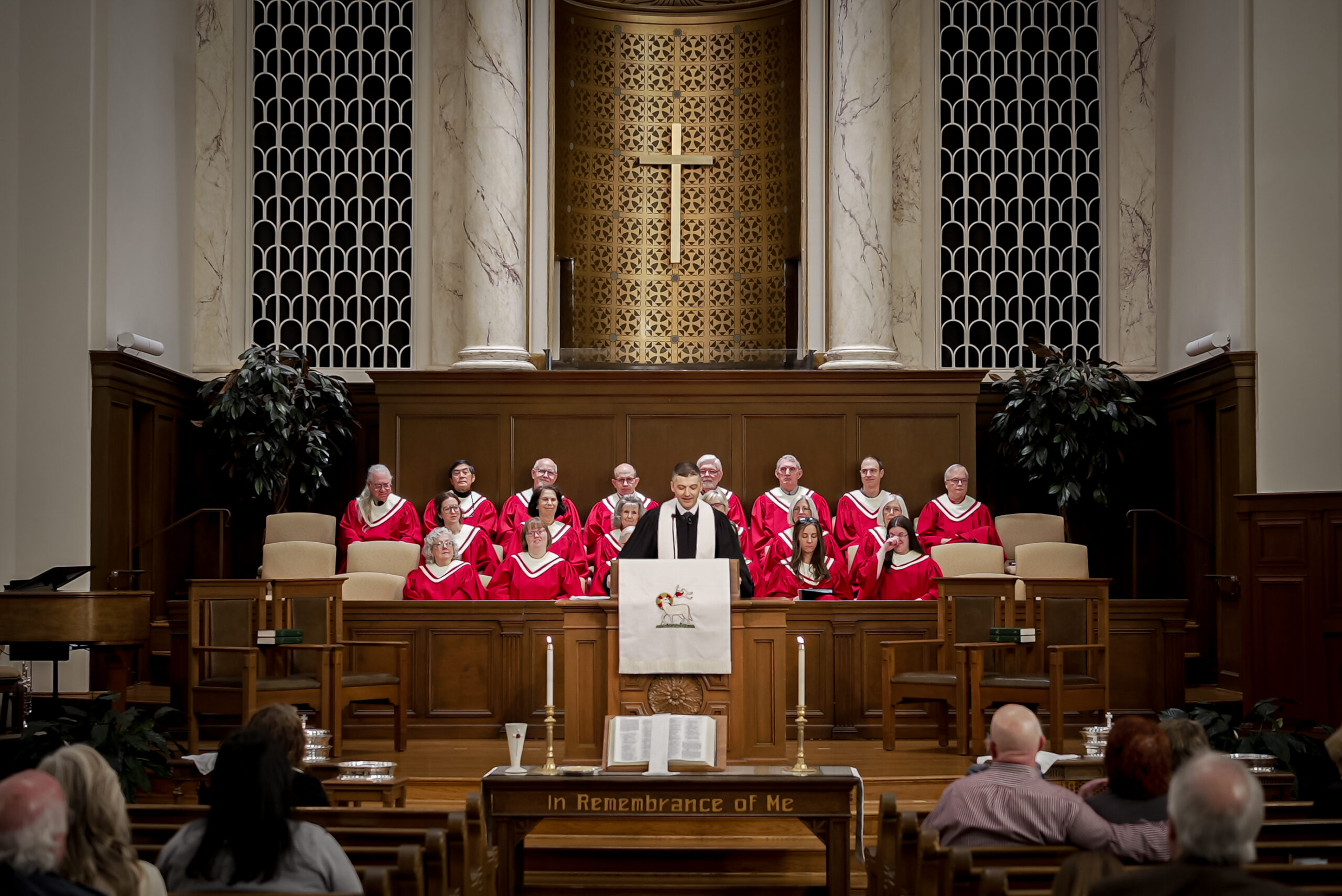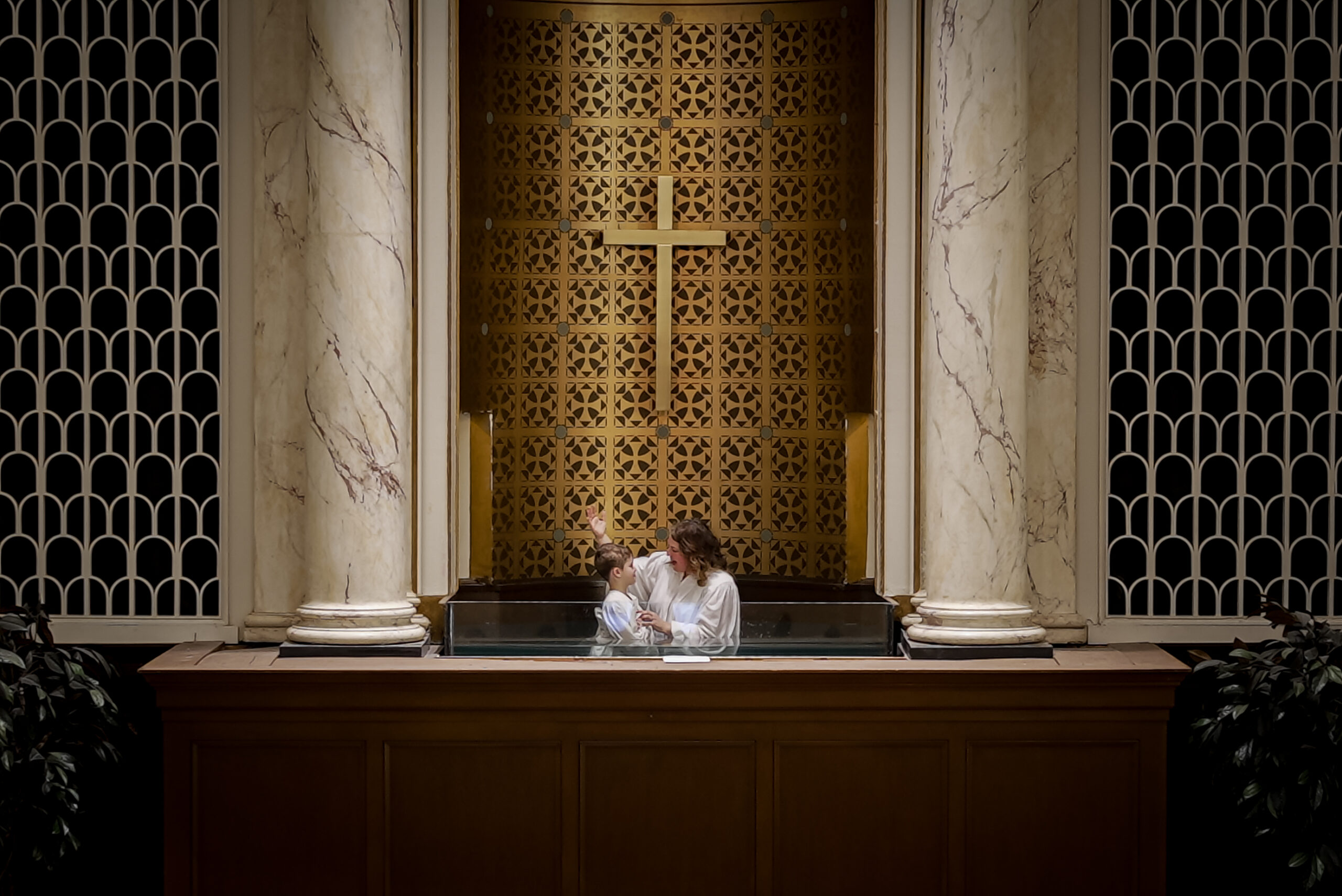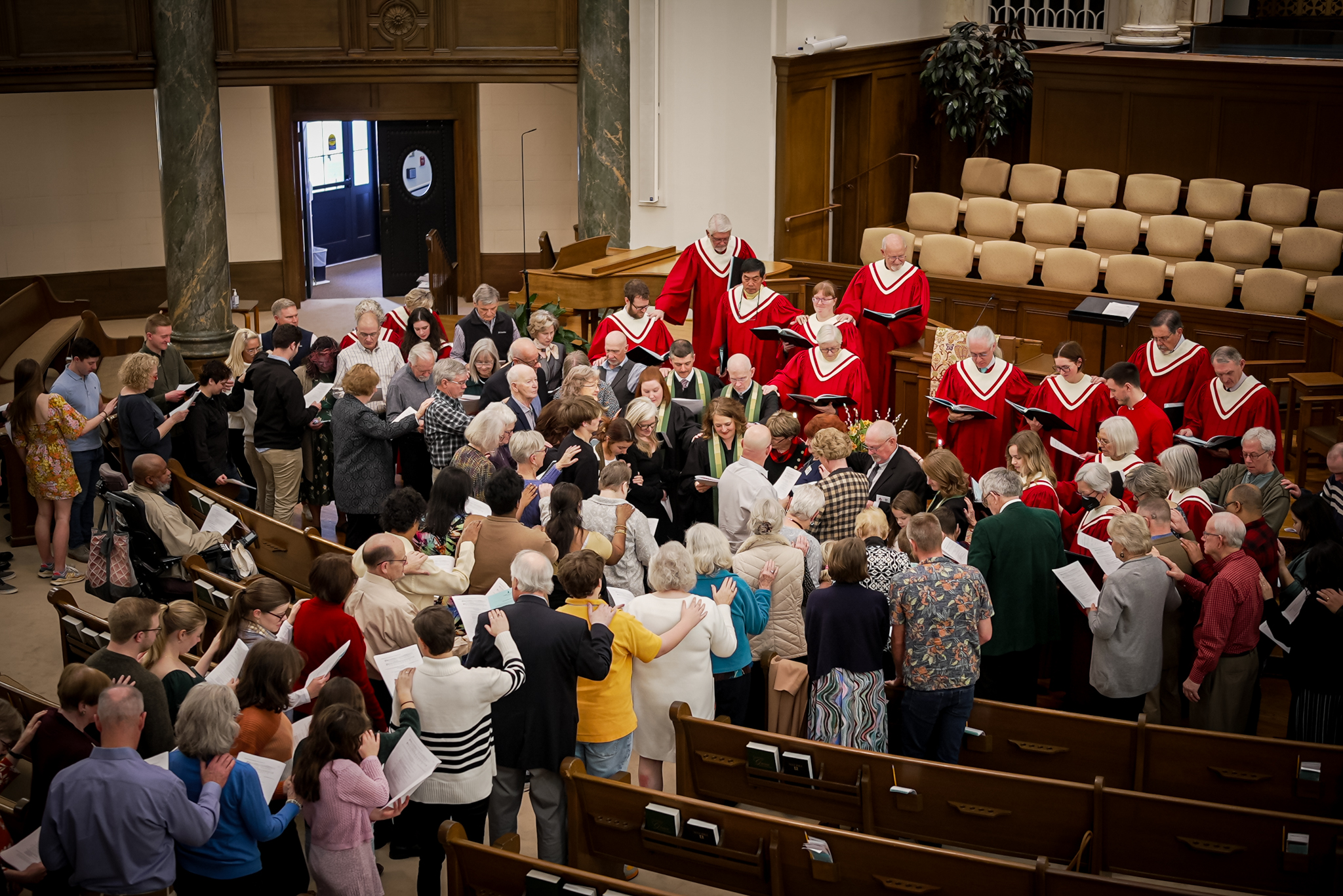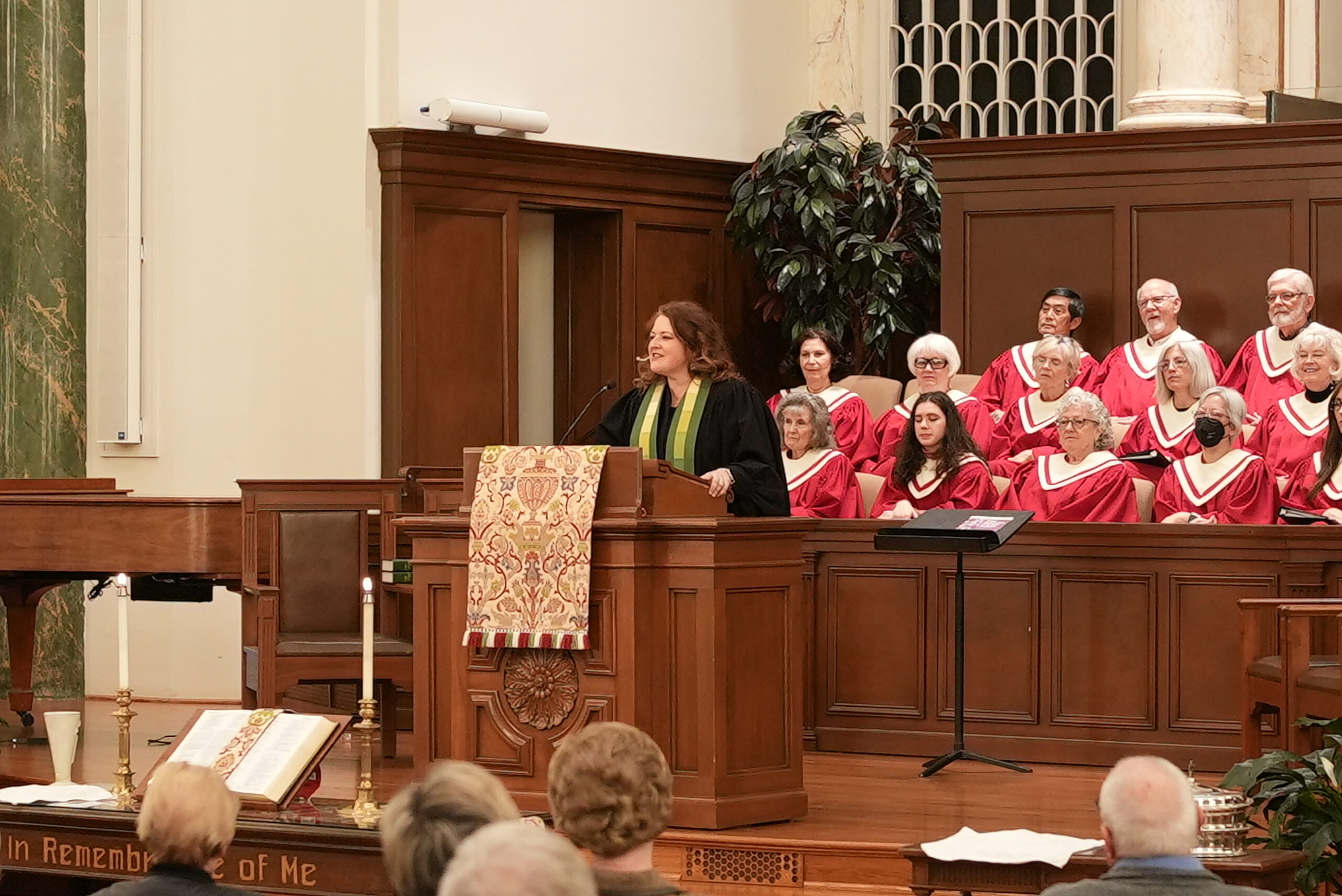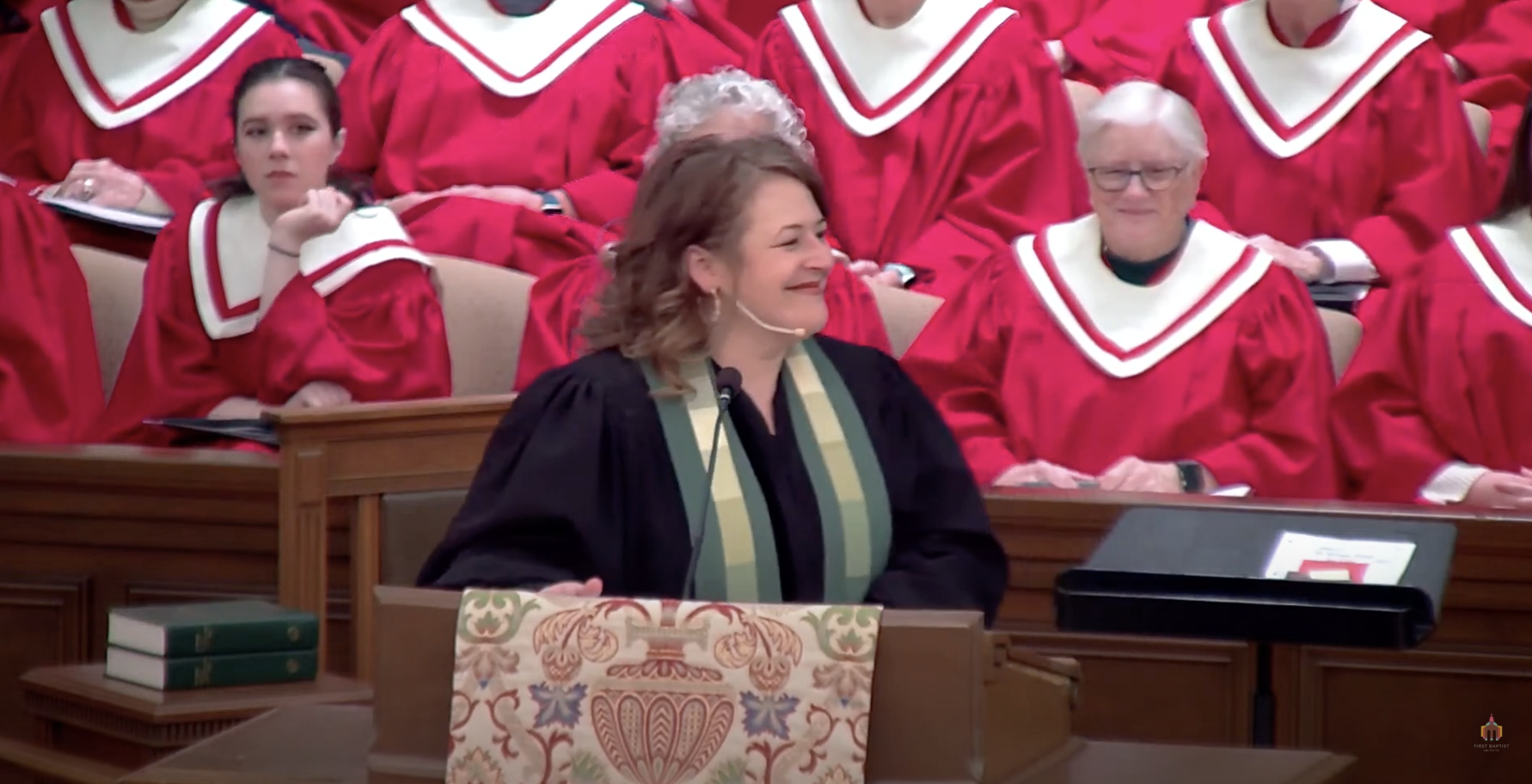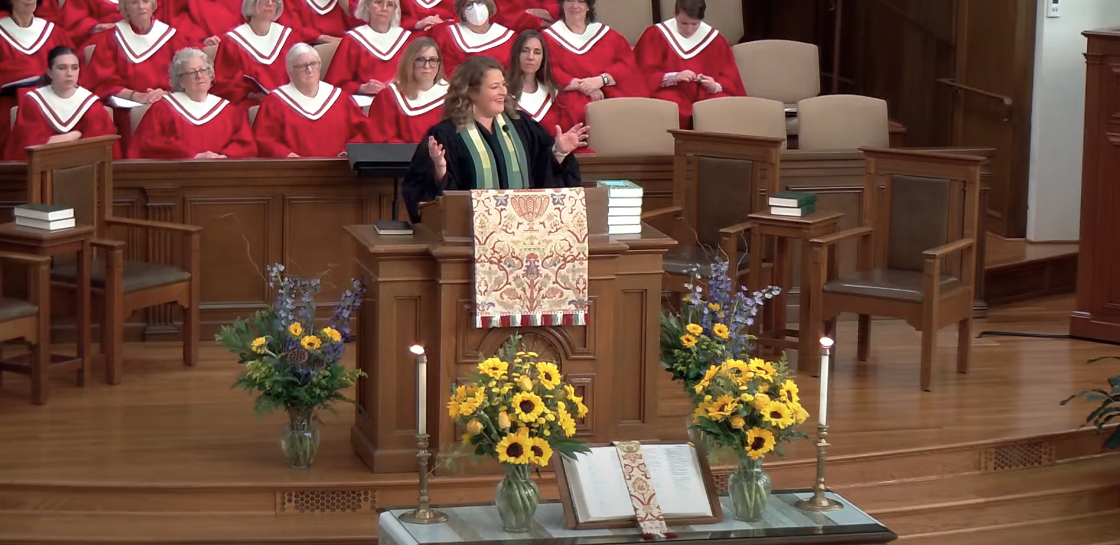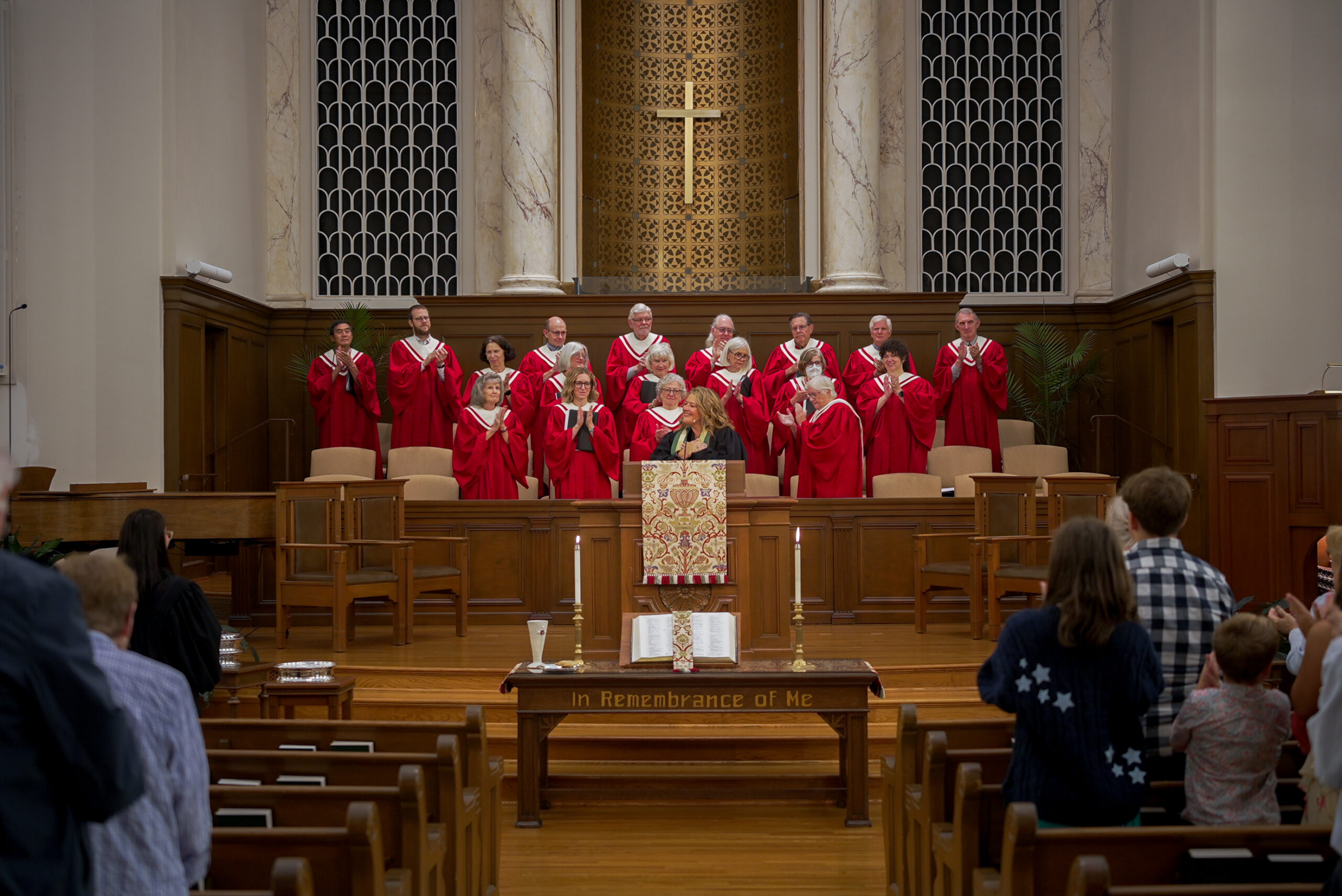I.It’s a real gift as a pastor’s kid-turned-pastor to have my pastor parents here in Winston-Salem, and icing on the cake when my dad teaches a class I get to attend. I did so this past week, and heard him share a story I never knew before! It seems that one of the perks of pastoring in Alabama which my dad did for more than a dozen years, is being invited to pray the dedication prayer upon the launch of the Alabama Bass Trail – a series of 11 bodies of water that are great for fishing. Now, my dad knows next to nothing about fishing, but happened to be seated at a table with a host of professional fishers during the celebration lunch after the dedication. At his table was a man named Chris Layne, the man who had just won the Bassmaster Classic, which you might call the Super Bowl of bass fishing. Never one to pass up a chance to learn, my dad took advantage of the opportunity and asked this fishing champion the secret to his success. “What’s the secret to fishing at such a high level?,” Dad asked Chris. “Is it the location, or is it the bait?”
I’ve got to think Dad was pretty proud that his question conveyed he knew at least a little about fishing. But what Chris Layne said next was entirely unexpected. “The most important thing,” he said, “is confidence. Just as a golfer is great because of mental ability, what sets a champion apart in fishing is confidence – the ability to go out there, to believe that you are going to catch something, and to stay with it, overcoming obstacles with the confidence that you will be successful.”
Ever the wise thinker, I bet my Dad was delighted by this answer. He thanked Chris Layne for sharing, and Chris responded to the pastor beside him with a smile, “you’re not just talking about fishing for bass are you?”1
II.“Many go fishing all of their lives,” Henry David Thoreau says, “without knowing that it is not fish they are after.”2
You may not be a fisher, but tell me – what are you fishing for? What type of fisher are you?
Maybe you live like a trapper: sinking the baited, weighted traps down deep and just waiting to see what swims in. You don’t need to go searching for perfection, no matter the quest. Give you a passive opportunity any day that preserves your energy, and you’ll make do with whatever comes your way. A scrappy, low key kind of living right here.
Maybe you live like a fly fisher: out in the waters of your life looking for just the right catch. You select a precise type of bait3 and cast with exacting precision, looking for the perfect job, or mate, or investment opportunity, or friend, or trip, or stylish jacket, or way to spend an afternoon. I’ve gotta think that more times than not, that cast is coming up empty. This type of living reminds me of the story of the girl and her ballet recital. The dance teacher had marked an ‘x’ in each spot where the young dancers would go, and told them to “find your ‘x’ and start dancing.” Out went the dancers in their little tutus, already a swirl of color and sequins – that is, save for one dancer who spent the entire performance trying to find her ‘x’ and didn’t dance a single step.4
But what if you lived like a net fisher: casting out that net and scooping up whatever enters in. Using what you know for the sake of the good news. Over and over again, your net filling with all sorts of wildly diverse options, held in the steady arms and rhythmic flow of such a call.
III.It’s those net fishers we’re pondering today. Not long after his first sermon back home in Nazareth, Jesus has swapped the synagogue for the sea, finding respite from the crowds pressing in on him to hear his good news. It’s a familiar story of calling, but unlike Matthew and Mark, where the disciples followed Jesus without any prior knowledge of him or his ministry, Luke sets this account with Simon (later called Simon Peter) who already knew Jesus. He had heard Jesus teach, welcomed Jesus to stay in his house house, even kept vigil as Jesus healed his mother-in-law from an illness. There’s a relationship there.
So when we hear Luke use the name Simon Peter for the first time, when abundance begins to fill the boats such that they start to sink, when like Isaiah before him we hear Simon Peter echo a word of unworthiness before Jesus in this exchange, our ears should perk up.
We should notice that Jesus’s call to discipleship here in the Gospel of Luke didn’t come first to the privileged, or when things were just so. The call didn’t happen when the disciples were in their last semester of school, ripe and ready for their first job. The call wasn’t issued once they had figured out what to do next: when they’d perfected the art of fishing, or thoroughly tidied up their houses, or paid off the credit card debt, or when the kids had finally settled down, or when the retirement fund reached its peak. The call wasn’t for precision fishing or passive fishing. Rather the call to discipleship came intimately to Simon Peter: right there on the job he had, stuck in the motions he was in, at the end of a back-breaking third shift that yielded nothing for his labor. The call came when he was being just who he was, using the tools he had.5
Drop the nets again, Jesus said, his voice full of compassion. You know the motions. You know those nets, you know how to hoist them up and send them plunging into the waters. Simon Peter, you know what you’re capable of, you know these boats and this sea, you are a fisherman! Abundance will come. Do not be afraid! From now on you will be catching people.
IV.Drop the nets, Jesus says to us – too weary to move, too perfectionistic to trust. Put them out into deep waters. And to those of us unsure, perhaps like SImon Peter – those who’d rather stay right where we are, thank you very much; those paralyzed in our fear when God calls us; those who would just prefer things as they were – might we be encouraged that Jesus didn’t call Simon Peter away from the boat. Jesus didn’t ask him to relinquish the tools he knew best – the net, the water, the rhythms of the tides – or to leave the place where he was most comfortable – right there in the boat, with his friends, afloat on the sea, doing what he’s done thousands of times before. Rather, Jesus called to Simon right where he was – weary and wanting – inviting him to do what he knew best, but to do so deeper, truer, in a way that changes everything.
This is such a beautiful lesson for us, no matter the kind of fisher we are, but I keep thinking about that champion fisher my dad met. When questions of “how” arise – how to bait, how to know where to drop a line, how to get the job done, how to succeed – he spoke of confidence. Confidence in one’s own skill and instinct, in his case, but what about when the call is to fish for people. Where do we place our confidence?
I have to think that in order to do the work of catching, we have to first experience the confidence of being caught. Caught in Christ’s abundance. Caught with a colorful diversity of others all in the same net. Caught when we try to wriggle away and do it ourselves. “The miraculous catch,” William Sloane Coffin said, “was not the haddock and shad and whatever else Peter and the rest of them caught that day, but the fact that Peter and the rest were caught up, even as we are, in the net of Christ’s love.”6
“We are all caught in an inescapable network of mutuality,” Dr. King said, “tied in a single garment of identity. Whatever affects one directly, affects all indirectly.” The nets and networks that hold us together, sometimes against our will, sometimes when it’s hard, sometimes when we’d rather shimmy away and go it alone. But like a good shepherd who finds their sheep, like a loving parent who won’t rest until their child is home again, God is in the business of catching, of catching us together, again and again with unyielding Love.
What happens to fish when they’re caught? They struggle, perhaps knowing that death is imminent. What happens to us when we’re caught by God? We struggle, perhaps knowing resurrection is imminent.
V.It was January 7 when the Santa Ana winds blew into greater L. A. and upended life for millions. And it was the Eaton Canyon fire that encroached upon the church house of First Baptist Church of Pasadena, California. Their pastor, John Jay Alvaro and his family, evacuated there, and together with other members, quickly set up the church house as a shelter while the fires continued to spread. Mass texts were sent to the congregation: “Dear Church Family — please let us know if you are in need of support or a place to evacuate as we weather these wind storms and fires together. If we need, the church can be a shelter.”
By the time the night was over, more than 40 people and 25 pets were finding refuge in the church house. They had set up a war room in a Sunday Sunday school classroom with a whiteboard full of information about who was where, shifts for watching the door, supply runners, communication flow, critical contact info. Around the clock, members let in others who would show up and help them settle in safety. The night wore on, and the day brought even more severe winds. The sun was barely visible through the smoke. And yet, that makeshift church shelter was stable, intake was in rotations and rooms were being reassigned, people who could go back home were moved offsite while new folks came in. Everyone waited and wondered if their home was spared. Calls started coming in. Four homes were gone by that afternoon. The families escaped safely, but return wasn’t an option. As time passed, stories poured in of more losses, of staggering trauma and fear right in the midst of their neighborhood, stories that washed over this congregation.
But the immediate threat to the church house had passed, and their leaders made the decision to safely host worship that Sunday in their Sanctuary. They had to clean up the place a bit from the emergency shelter it had become, but that Sunday morning, the body of Christ called First Baptist Church of Pasadena gathered. And as is their custom, they began with an open mic to share gratitudes: “story after story of provision and kindness in the midst of the terror.” John Jay wrote, “In a church like ours, the people are the gift God is giving to the world, and as leaders we simply structured a liturgy to turn one another toward each other. So we ended with a benediction with those whose homes were destroyed at the center. We crowded around them, and hands on shoulders and arms raised in defiant heartbreaking joy. May the Lord bless you and keep you. May the Lord make his face to shine upon you and be gracious to you. May the Lord lift up his smile upon you, and give you peace, now and all your days. In the name of the Father and the Son and the Holy Spirit. Amen.”8
Caught in the network of inescapable mutuality. Caught in the confident net of God’s love. Caught in the endless blessing and shelter of beloved community. These were deep waters they found together, and with scarcity and death seemingly everywhere they turned, their hearts were enlivened with abundance.
VI.Beloved church, we are called by Jesus to be fishers of people – not fly fishers, picking out the ones we want, or trappers, aimlessly waiting by, but fishers with our nets. Fishers using what we know and what we have for the sake of the good news. But we cannot do it alone. We rest in the full confidence of God’s love, like a net that catches and holds us. And we find grace in the deep community of Christ’s church, all folded in together in the fullness of who we are. It is both our role and responsibility as the church to go to the world with this net – not to cage but to hold, not a weight but a tether. We go with our warm meals to a neighbor recovering from surgery and with our texts to check in on a teenager going through a rough patch. We go with our advocacy at the school board for all of God’s children and with our presence in places where Love can be balm and ballast. We go out to the deep waters of this world, drawing upon the well of the Spirit’s refreshment and confident in the Creator’s hold.
In just a moment, we’ll bless and commission our Deacons as they begin their year of service. On this Deacon ordination Sunday, Deacons, we ask you to help us with that net. Give us your sturdy faith when ours feels weak. Care for us and encourage us when the waters are rough. Remind us of God’s abundance when we can only see scarcity. Call us back to the deep waters where Jesus is to be found. Make this place a refuge, a sanctuary, a net for us all.
“Do not be afraid,” Jesus says. Do not be afraid! “From now on, you will be fishing for people.” Amen!


